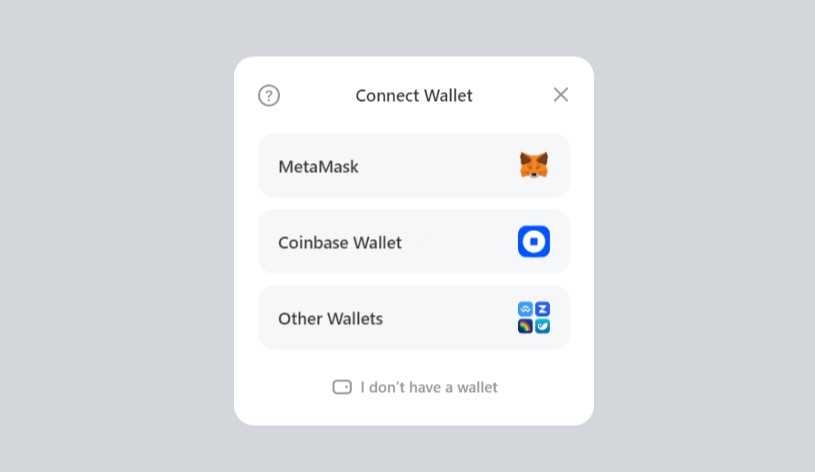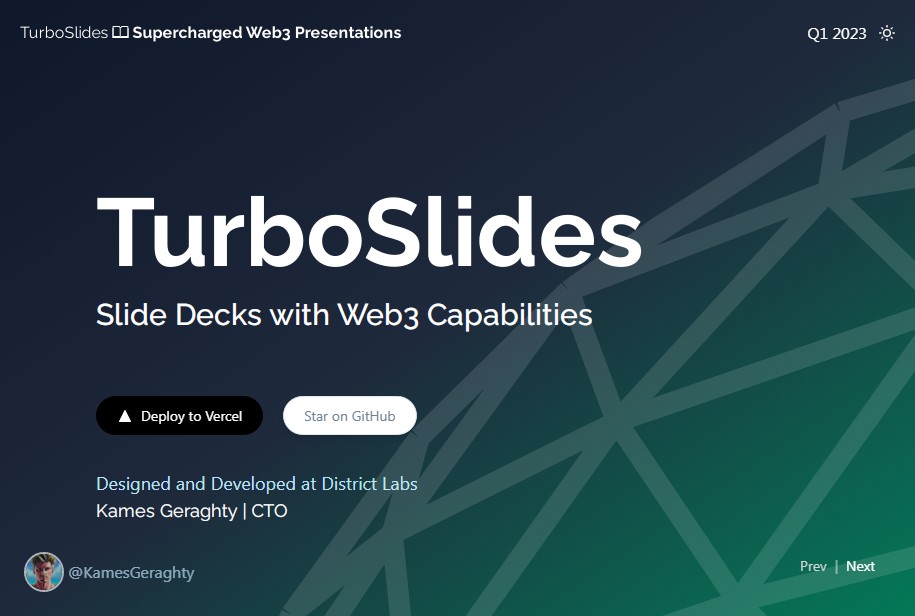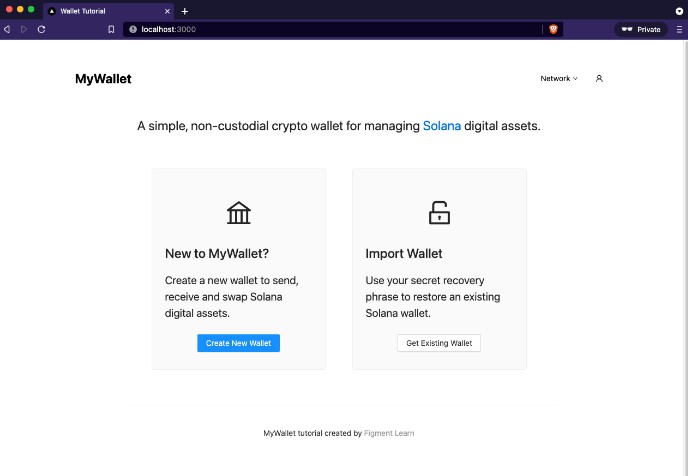Brownie NextJS Mix
This mix comes with everything you need to start using NextJS with a Brownie project.
Installation
-
Install Brownie, if you haven’t already. You must be using version
1.9.0or newer. -
Download the mix.
git clone https://github.com/rafael-abuawad/next-mix.git
-
Install the Next (React) client dependencies.
cd ./client yarn installor
cd ./client npm install -
If you want to be able to deploy to testnets, do the following.
Set your WEB3_INFURA_PROJECT_ID, and PRIVATE_KEY environment variables.
You can get a WEB3_INFURA_PROJECT_ID by getting a free trial of Infura. At the moment, it does need to be infura with brownie. If you get lost, follow the instructions at https://ethereumico.io/knowledge-base/infura-api-key-guide/. You can find your PRIVATE_KEY from your ethereum wallet like metamask.
You’ll also need testnet ETH. You can get ETH into your wallet by using the faucet for the appropriate
testnet. For Kovan, a faucet is available at https://linkfaucet.protofire.io/kovan.You can add your environment variables to a .env file. You can use the .env_example in this repo
as a template, just fill in the values and rename it to ‘.env’.Here is what your .env should look like:
export WEB3_INFURA_PROJECT_ID=<PROJECT_ID> export PRIVATE_KEY=<PRIVATE_KEY>
-
Create brownie account(s) following instructions here:
https://eth-brownie.readthedocs.io/en/stable/account-management.html -
Import the brownie account to MetaMask using their private key(s)
Usage
-
Open the Brownie console. Starting the console launches a fresh Ganache instance in the background.
$ brownie console Brownie v1.9.0 - Python development framework for Ethereum ReactMixProject is the active project. Launching 'ganache-cli'... Brownie environment is ready.
Alternatively, to run on Kovan, set the network flag to kovan
$ brownie console --network kovan Brownie v1.14.6 - Python development framework for Ethereum ReactMixProject is the active project. Brownie environment is ready. -
Run the deployment script to deploy the project’s smart contracts.
>>> run("deploy") Running 'scripts.deploy.main'... Transaction sent: 0xd1000d04fe99a07db864bcd1095ddf5cb279b43be8e159f94dbff9d4e4809c70 Gas price: 0.0 gwei Gas limit: 6721975 SolidityStorage.constructor confirmed - Block: 1 Gas used: 110641 (1.65%) SolidityStorage deployed at: 0xF104A50668c3b1026E8f9B0d9D404faF8E42e642 Transaction sent: 0xee112392522ed24ac6ab8cc8ba09bfe51c5d699d9d1b39294ba87e5d2a56212c Gas price: 0.0 gwei Gas limit: 6721975 VyperStorage.constructor confirmed - Block: 2 Gas used: 134750 (2.00%) VyperStorage deployed at: 0xB8485421abC325D172652123dBd71D58b8117070
-
While Brownie is still running, start the React app in a different terminal.
The first time this app is used, the node modules have to be installed in /src.
To do this, navigate to ./client/src and run# make sure to use a different terminal, not the brownie console npm install npm audit fix -
Connect Metamask to the local Ganache network. In the upper right corner, click the network dropdown menu. Select
Localhost 8545, orKovan test network: -
Interact with the smart contracts using the web interface or via the Brownie console.
# get the newest vyper storage contract >>> vyper_storage = VyperStorage[-1] # the default sender of the transaction is the contract creator >>> vyper_storage.set(1337)
Any changes to the contracts from the console should show on the website after a refresh, and vice versa.
Ending a Session
When you close the Brownie console, the Ganache instance also terminates and the deployment artifacts are deleted.
To retain your deployment artifacts (and their functionality) you can launch Ganache yourself prior to launching Brownie. Brownie automatically attaches to the ganache instance where you can deploy the contracts. After closing Brownie, the chain and deployment artifacts will persist.
Further Possibilities
Testing
To run the test suite:
brownie test
Deploying to a Live Network
To deploy your contracts to the mainnet or one of the test nets, first modify scripts/deploy.py to use a funded account.
Then:
brownie run deploy --network kovan
Replace kovan with the name of the network you wish you use. You may also wish to adjust Brownie’s network settings.
For contracts deployed on a live network, the deployment information is stored permanently unless you:
- Delete or rename the contract file or
- Manually remove the
client/artifacts/directory
Resources
This mix provides a bare-bones implementation of Create Next App, configured to work with Brownie.
To get started with React and building a front-end for your dApps:
- Rimble is an open-source library of React components and guides to help you make dApps. Along with components they provide guides and tutorials to help you get started.
- For more in-depth information, read the NextJS documentation
To get started with Brownie:
- Check out the other Brownie mixes that can be used as a starting point for your own contracts. They also provide example code to help you get started.
- “Getting Started with Brownie” is a good tutorial to help you familiarize yourself with Brownie
- For more in-depth information, read the Brownie documentation
Any questions? Join our Gitter channel to chat and share with others in the community.


